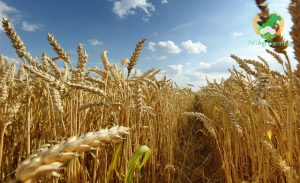By. Shahzad, Ghulam Fatima
IN VITRO PROPAGATION OF POTATO
Tissue culture is emerging field of breeding and forms integral part of plant biotechnology. It offers an alternative to conventional vegetative propagation and has various advantages over other breeding methods like we get pathogen free plant in tissue culture and through this technique we can propagate plants which otherwise impossible to propagate and it require only small part of plant for its propagation. Using this method, we can get millions of genetically identical plants. This method is, therefore, an alternative to conventional vegetative propagation.
Agricultural diversification to meet our future needs call for the adoption of new technologies in agriculture. Utilization of the best culture practices, fertilization, pests control measure will not give the necessary results without the use of best planting material.
Potato is an annual crop with 48 chromosomes number. It belongs to Solanaceae family. An auto tetraploid specie is stuffy, perennial and heterozygous plant species. Potato originated Peru in North America and feast to other parts of the world. Depending on cultivar during storage of potato start gathering reducing sugars, by which transport sweet flavor in their end vintage because of objectionable brown shade of chips and fries as well as creating them unfit for chips treatment.
Potato (Solanum tuberosum) is the fourth most important staple food crops after wheat rice and corn. Potato is one of the most important cash crops in Pakistan. This plant does not produce seeds normally and require specific environmental conditions for flowering and propagated vegetatively through seed tubers.
Potato is staple food in many countries especially in Ireland and wild potato species can be found throughout Americas from united states to southern Chile.
The potato is a starchy, tuberous crop from the perennial nightshade Solanum tuberosum. Potato contains carbohydrates, vitamins minerals and proteins.
Tissue culture is now a significant horticulture propagation method which has revolutionized the horticulture industry. This technique should be considered for mass propagation and the establishment of disease free stock material. There are four stagess of tissue culture technique.
- Stage I Introduction and establishment
- Stage II Propagation of plants
- Stage III Rooting and explant preparation for the ex vitro conditions
- Stage IV ex vitro adaptation or plant acclimatization
For Tissue culture in potato, first we need to select explant for culture, selection of explant is crucial step as it must be of 2-3 inches and should not be contaminated with any disease or insect.
Wash explant with sterilizing agents (twin 20, max). This is necessary to remove dirt or any other foreign agents. After 30 minutes of sterilization wash these branches with distilled water and it these branches to laminar flow.
In laminar flow put these branches in solution containing 15ml clorox and 85ml double distilled water and shake it for 30 minutes and then wash these branches twice with double distilled water. now trim these branches to appropriate size and then place these branches into already prepared media and close the lid with flame.
In Pakistan tissue culture is only way for propagation. Region which is famous for potato include Okara, Sahiwal, Depal por etc. There Is a research station inn Sahiwal working only on potato, its cultivation, diseases, insects and fertilizer requirement for its optimum yield.








